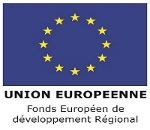Research Group on Water, Soil and the Environment (GRESE)
EA 4330
Contact
Tél. : + 33 (0)5 55 45 73 67
WEBSITE
Adress :
GRESE – Faculté des Sciences et Techniques
123 av Albert Thomas
87060 LIMOGES
Administrative Supervision : Université de Limoges
Parent Institute : GEIST
Doctoral School : ED 523 Gay Lussac – Sciences pour l’Environnement
Associated Research Master : Qualité et Traitement de l’Eau
Key figures (31/12/2015)
Professors : 22
Accreditated to direct research (HDR) : 14
Doctoral Students : 15
Engineers, Technicians, administratif staff : 10
Scientific Publication (2011-2014)
Books :
Book chapters :
Thesis defended :
Conference presentations :
> WEBSITE PUBLICATION
Economic Added Value (2011-2014
International conferences, seminars organized : 2
Projects
Current european projects : 4
Presentation
The Research Group on Water, Soil and the Environment (GRESE) federates 40 permanent teacher-researchers and technicians and 20 doctoral students in the field of Environmental Sciences, which include in particular specialists in analytical chemistry, process engineering, physico-chemistry, solid-state chemistry, pedology, surface geoscience, ecology and botany. Research focuses on two complementary areas : • liquid phase and solid phase chemical speciation for assessing the transfer conditions of organic and inorganic pollution on the surface of the Earth, • the development of technological responses and implementation of innovative processes and management modes for treating polluted water and soils. These themes are addressed from a fundamental viewpoint by studying the mechanisms of genesis, chemical speciation, interactions between phases and degradation of pollutants. A wide variety of mediums are studied including soils, sediments and solid residues, water, plants and purifying biomass. The GRESE’s research is applied to assessing risks related to point and non-point, metal and organic pollution (mine waste heaps, industrial sites, use of pesticides, etc.) and specific liquid discharges (hospital, urban effluents, etc.). The GRESE also develops processes for treating water and waste and for rehabilitating, upgrading and decontaminating industrial sites. The GRESE is involved in national and European networks and develops many partnerships with Southern countries and with Eastern European countries where there are major environmental issues. Finally, the GRESE has been partnering for many years with companies, public establishments and institutions in the field
Research themes
Environmental Diagnosis of Emerging Pollutants and Metals ; Wastewater Treatment ; Water Purification Techniques ; Soil Pollution and Hydrogeology ; Depollution Equipment ; Technical Waste Management
Keywords
Environmental Chemistry ; Pollution ; Water contaminants ; Soil Science ; Decontamination ; Micropollutants fate ; Sediments ; Water Treatment processes
Equipment / Technical resources
Water treatment pilot station (biological, filtration, ozonation, etc.) ; Composting platform ; Water analyses (AAs, ICP-MS, ion chromatography, HPLC, Mass-UPLC, TOC,…)
Industrial applications
Effluent treatment processes ; Environmental diagnosis on water and soil pollution ; Monitoring of water and soil ; Development of qualitative measures for waste ; Waste containment protocols
Partnerships
Active National University Partnerships : Blaise Pascal University (Physiology and Plant Biotechnologies Unit ERTAC), University of Poitiers (UMR CNRS 6008 and 6296), University of Tours (UMR 6113), University of Bordeaux (UMR 5805), University of Amiens (UMR 8157), University of East Paris (EA4508), University of La Rochelle (UMR LIENS), University of Caen (EA3915), University of Lorraine Current International University Partnerships : University of Girona (Spain), Lublin Polytechnic School (Poland), University of Abomey Calavi (Benin) and University of North Carolina-Charlotte (USA) University of Blida (Algeria), Universities of Sfax and Tunis (Tunisia), University of Wageningen (the Netherlands), University of Shanghai (China), INRS ETE (Canada), US Geological Survey Atlanta (Georgia, USA), US Geological Survey at Stanford University and at the University of California-Berkeley, University of Lakehead (Ontario, Canada), Universities of Wroclaw and Krakow (Poland), access to synchrotron radiation at ALS Berkeley (USA), UNESCO IHE (Delf, the Netherlands)kow (Pologne) ; accès rayonnement synchrotron ALS Berkeley (USA) ; Unesco IHE (Delf, NL) National Industrial Partnerships : VEOLIA Water, VALDI, FAURE Equipements, SAUR, ICF environnement Partnerships with National Organizations and Institutions : IRSTEA, CSTB, Water Agencies, Loire Public establishment, IFCE.



